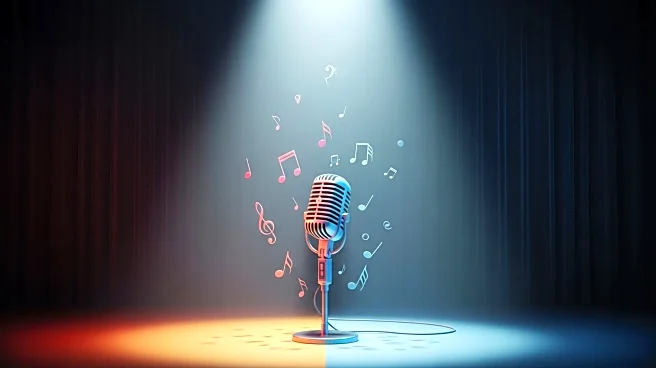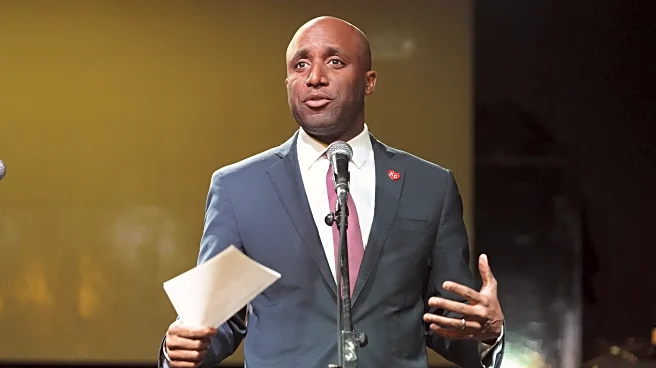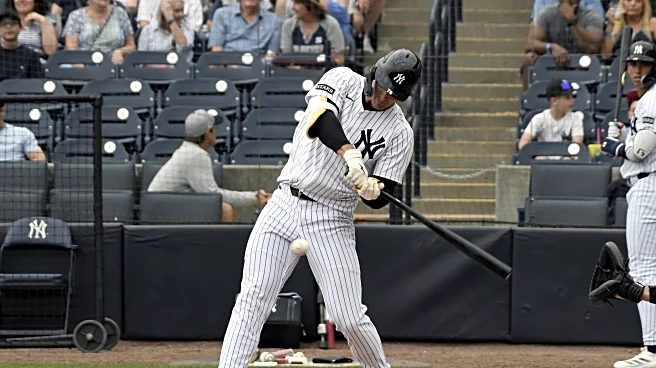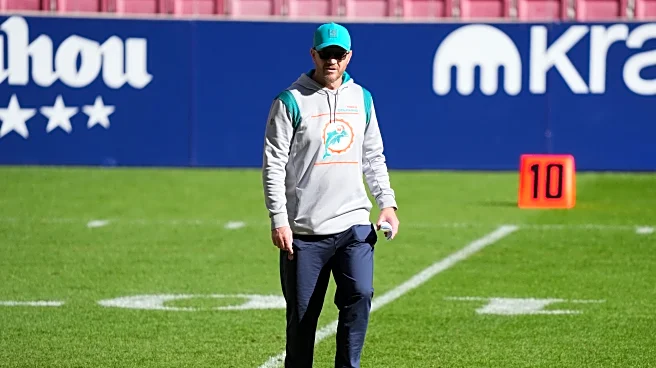What's Happening?
Bad Bunny, the Puerto Rican rapper, addressed criticism regarding his selection as the headlining act for the 2026 Super Bowl Halftime show during his appearance on 'Saturday Night Live.' The backlash primarily came from far-right commentators who accused him of being unpatriotic. In his 'SNL' monologue, Bad Bunny humorously suggested that critics have 'four months to learn' Spanish to enjoy his performance. He emphasized the significance of his selection as a win for the Latino community in the United States, highlighting their contributions to the country. The rapper also referenced concerns about federal agents potentially targeting his concerts, a fear that had previously influenced his tour decisions.
Why It's Important?
The controversy surrounding Bad Bunny's Super Bowl performance highlights ongoing cultural and political tensions in the United States. His response underscores the growing influence of Latino artists in mainstream American culture and the challenges they face from certain political factions. The situation also reflects broader debates about immigration and cultural representation in high-profile events like the Super Bowl. For the NFL, the decision to feature Bad Bunny could attract a diverse audience, but it also risks alienating some viewers. The event's security measures, as mentioned by Trump administration officials, further illustrate the intersection of entertainment and immigration policy.
What's Next?
As the Super Bowl approaches, reactions from various stakeholders, including political leaders and the public, will likely intensify. The NFL may face pressure to address security concerns and the political implications of their entertainment choices. Bad Bunny's performance could serve as a cultural milestone, potentially influencing future decisions about representation in major American events. The response from the Latino community and other supporters may also shape public discourse around the event.
Beyond the Headlines
The situation raises questions about the role of artists in political discourse and the responsibilities of entertainment platforms in navigating cultural sensitivities. Bad Bunny's stance could inspire other artists to engage more openly with political issues, potentially leading to a shift in how cultural figures are perceived in the political landscape. The event may also prompt discussions about the inclusivity of American cultural institutions and the importance of diverse representation.









